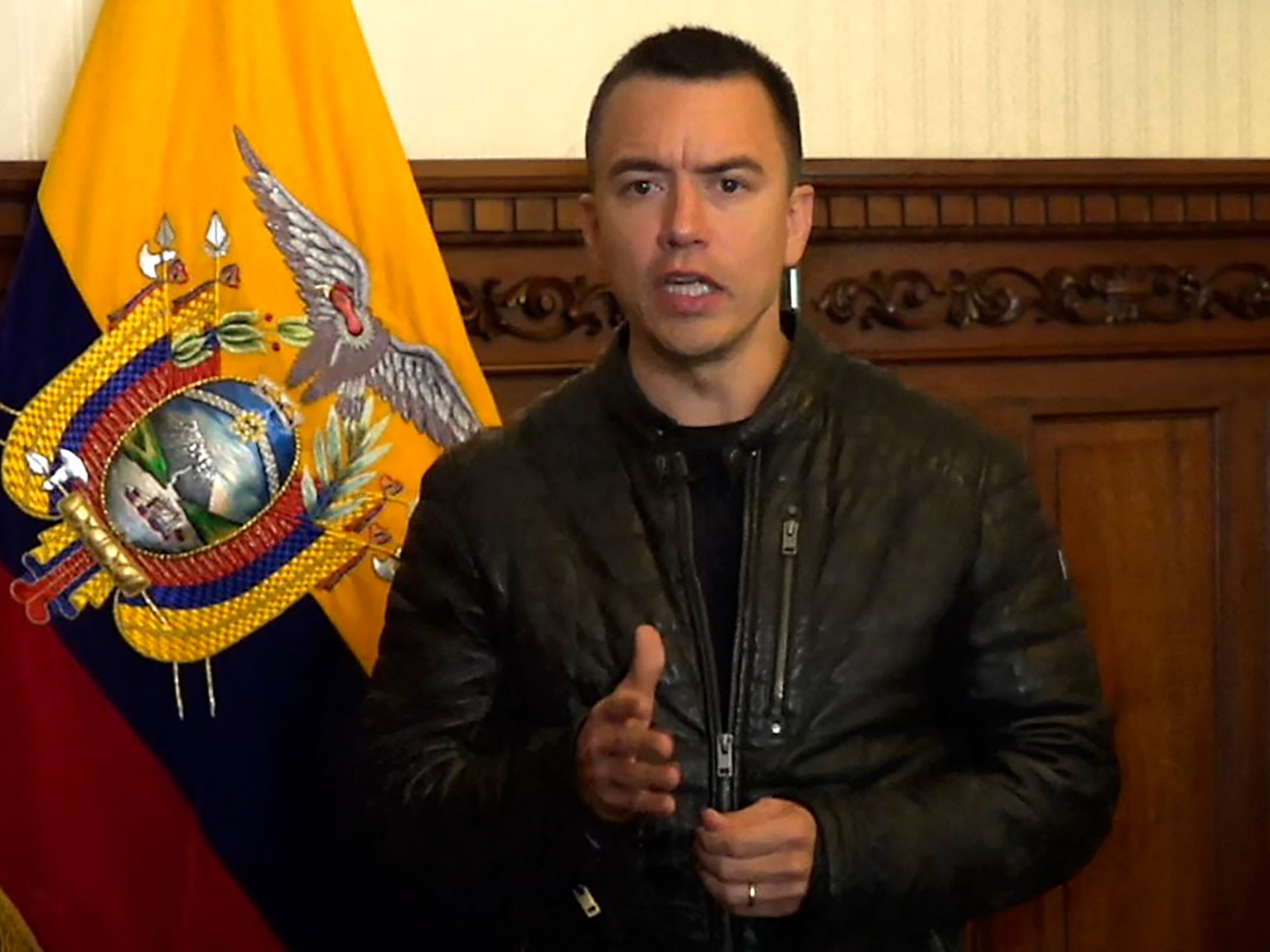Ecuador declares state of emergency, curfew after druglord escapes prison
Ecuador has declared a state of emergency after an “extremely dangerous” druglord escaped from maximum-security detention and unrest broke out at several prisons in the violence-plagued country.
President Daniel Noboa, in office since November, announced a 60-day mobilisation of soldiers in Ecuador’s streets and prisons as authorities searched for Jose Adolfo Macias, alias Fito.
There would also be a curfew from 11pm (04:00 GMT) to 5am (10:00 GMT) daily, the president said.
The state of emergency, Noboa said in a video on Instagram, would give members of the armed forces “all the political and legal support” they need to carry out their duties in a battle against what he described as “narcoterrorists”.
“We will not negotiate with terrorists nor rest until we return peace to all Ecuadorans,” Noboa said.
On Sunday, Fito, the leader of the powerful Los Choneros gang, was found missing by police conducting an inspection of a prison in the port city of Guayaquil.
The 44-year-old, who is said to have instilled terror in his fellow inmates, is believed to have escaped just hours before police arrived, according to presidency spokesperson Roberto Izurieta. He was apparently tipped off.
“The full force of the state is being deployed to find this extremely dangerous individual,” Izurieta told domestic television on Monday.
He said the prison system had failed and bemoaned “the level of infiltration” by criminal groups.
The prosecutor’s office, meanwhile, said it had opened an investigation and filed charges against two prison officials “allegedly involved in the escape” of Fito.
‘He must be found’
Fito had been serving a 34-year sentence for organised crime, drug trafficking and murder since 2011.
This is his second prison escape – the last was in 2013 when he was recaptured after three months.
In an operation involving thousands of security forces, Fito was transferred to a maximum-security prison last August following the assassination of presidential candidate Fernando Villavicencio.
A week before his death, anti-cartel candidate Villavicencio said he had received threats from Fito.
Long a peaceful haven between top cocaine exporters Colombia and Peru, Ecuador has seen violence explode in recent years as rival gangs with links to Mexican and Colombian cartels vie for control.
Gang wars largely play out in the country’s prisons, where criminal leaders such as Fito wield immense control.
Some 460 inmates have been killed in these battles since 2021, and their bodies are often found dismembered, decapitated or incinerated.
Izurieta said Fito, who studied law in prison, was a “criminal with extremely dangerous characteristics, whose activities have characteristics of terrorism”.
“The search continues … He will be found, he must be found,” said the spokesperson.
After Fito’s escape, unrest broke out at penitentiaries in six of Ecuador’s 24 provinces on Monday, according to the SNAI prison authority, with guards taken hostage at some of the facilities.
Heavily armed police and soldiers entered the prisons of El Oro, Loja, Chimborazo, Cotopaxi, Azuay and Pichincha, after which the military distributed images of half-naked inmates rounded up in courtyards.
The SNAI said there had been no injuries due to the “incidents”.
Other videos on social media, not verified by the authorities, purported to show hooded inmates threatening officials with knives as they pleaded for their lives.
Noboa came to power with promises to clamp down on gangs and insecurity.
On the campaign trail, he proposed creating a separate judicial system for the most serious crimes, militarising the borders with Colombia and Peru, and jailing the most violent offenders on barges offshore.
Last week, he announced the construction of two new maximum-security prisons similar to those built by El Salvador’s President Nayib Bukele, who has led a controversial crackdown on gangs credited with drastically reducing his country’s murder rate.




